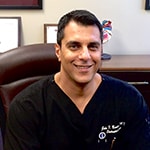What is Radiofrequency Cardiac Ablation?
Radiofrequency cardiac ablation (RFA), also referred to as catheter ablation, is a procedure to help manage arrhythmias or irregular heartbeats. Using radiofrequency energy, RFA can destroy small areas of heart tissue that are contributing to an irregular heartbeat or a rapid heartbeat. The procedure is minimally invasive and very low-risk, with a high success rate in those who have it done.
Why is Radiofrequency Cardiac Ablation Done?
Radiofrequency ablation is done when abnormal cells in the heart create disorganized electrical signals. Special heart cells are responsible for making the upper and lower chambers of the heartbeat in the proper sequence, creating a regular heartbeat. Some conditions of heart disease can cause these cells to send incorrect signals at the wrong time, affecting the heartbeat. So, by destroying these damaged cells, radiofrequency ablation works to get the heart muscles back in sync.
While medication for an irregular heartbeat, or arrhythmia, can be very effective for most, others may experience bothersome side effects and can opt for radiofrequency ablation instead.
Radiofrequency ablation can also be used to manage an atrial flutter or atrial fibrillation (Afib), preventing these conditions from turning into something more serious like blood clots or a stroke. Atrial fibrillation Scottsdale ablation is often used to manage supraventricular tachycardia, another condition that causes an irregular heartbeat due to abnormal conductive fibers in the heart.
When is Radiofrequency Cardiac Ablation Needed?
Cardiologist Dr. John Beshai may recommend radiofrequency ablation after an ECG or other heart monitoring has detected an irregular heartbeat (arrhythmia). Other physical symptoms that may be present in a patient include:
- Heart palpitations
- Heart murmur
- Chest pain
- Fainting
- Dizziness
- Shortness of breath
- Weakness and fatigue
These symptoms can all be associated with the heart not pumping blood effectively. After further testing and a proper diagnosis, Dr. Beshai may determine that you are a candidate for treatment with radiofrequency ablation.
Have Inquiries About Our Services?
How is Radiofrequency Cardiac Ablation Performed?
To begin radiofrequency ablation, a nurse will administer anesthesia or sedation to keep you relaxed and comfortable. The area being worked on with then be cleaned, numbed, and shaved. This is typically done near a vein on the neck, forearm, or groin. A needle will then be inserted into the vein, a tube will then be placed through the needle, and a catheter will be placed through the tubes.
These catheters will then be carefully guided through the blood vessels to several locations within the heart, containing electrodes to detect and record the heart’s activity. The catheter’s electrode tips will be aimed at the area where abnormal heart tissue was detected. The area will then be targeted with radiofrequency energy to scar or destroy the abnormal cells, preventing them from causing irregular electrical signals. There may be some discomfort as the catheters are moving through the heart. The treatment process typically takes about two to four hours to complete but can take longer for more complicated cases.
Catheter ablation is a minimally invasive procedure that does not require incisions, making it less serious than heart surgery, yet still highly effective at reducing patients’ symptoms and reducing their risk for complications.
What are the Next Steps After Radiofrequency Cardiac Ablation?
After treatment with radiofrequency ablation, you will be moved to a recovery area where you can rest and your heartbeat and blood pressure are closely monitored. Some patients can return home the same day as treatment, while others may be required to stay a night in the hospital. You can expect some mild soreness after the procedure, but patients typically return to their regular routine right away.
You will be seen for a follow-up appointment and testing to ensure that radiofrequency ablation was successful. In some cases, additional treatment or medications may be needed.
Schedule Your Phoenix Radiofrequency Cardiac Ablation Appointment
Both Dr. Beshai and his expert medical team are highly experienced with performing radiofrequency ablation to treat an irregular heartbeat. Treatment with radiofrequency ablation is very successful in most cases and can prevent heart rhythm problems from developing into more serious conditions such as congestive heart failure. For more information about irregular heart rhythms and how to treat them, contact the Arizona heart specialists at the Heart Rhythm Institute of Arizona.
The Heart Institute of Arizona has a wide array of services that come with our premium care. From in-office diagnostics and treatable conditions to hospital-based procedures, we’ve got your heart covered.
Dr. Beshai is a board-certified electrophysiologist internationally renowned and respected for his expertise and research. Having published in major medical journals and travelled all over the world to present research, he is dedicated to providing innovative, state-of-the-art care to his patients.
-
John F. Beshai, MDhttps://heartbeataz.com/author/heartbeata/
-
John F. Beshai, MDhttps://heartbeataz.com/author/heartbeata/
-
John F. Beshai, MDhttps://heartbeataz.com/author/heartbeata/
-
John F. Beshai, MDhttps://heartbeataz.com/author/heartbeata/

